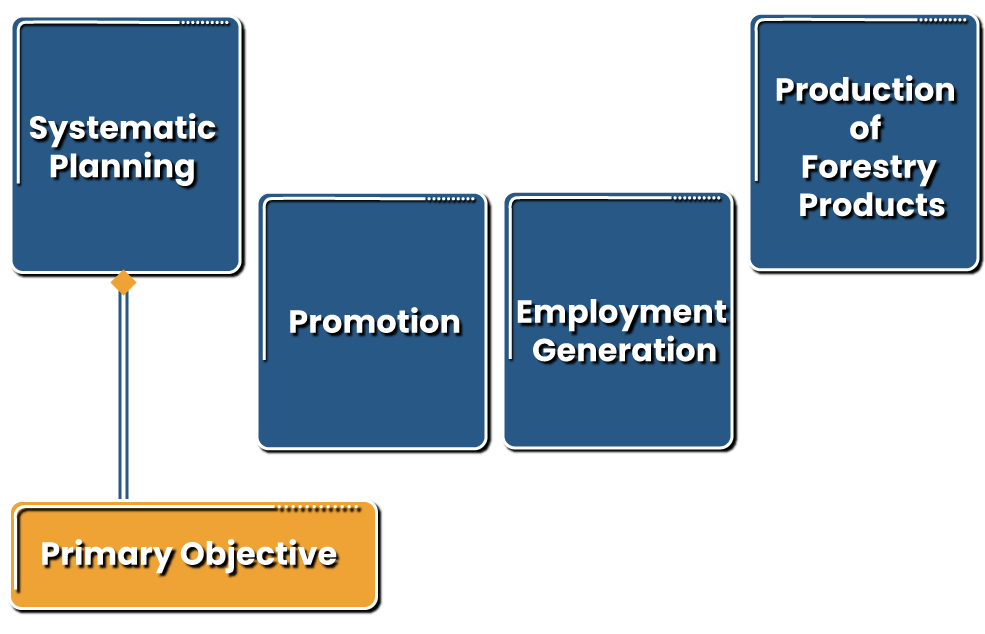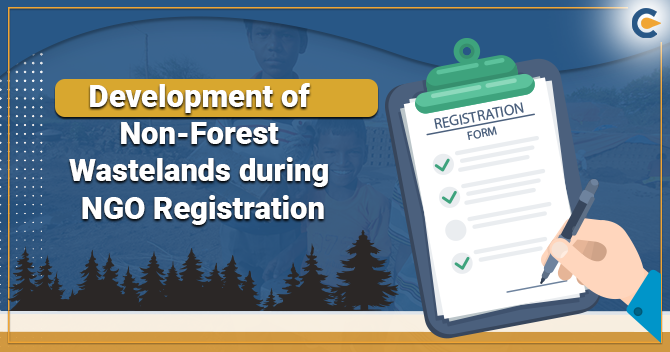The reorganized National Wastelands Development Board (NWDB) was given the detailed responsibility to evolve mechanisms for combined development of non-forest wastelands through systematic preparation and implementation. It is to be done in a cost-effective method, specifically to meet the requirements for the people in the rural areas. In this blog we are going to discuss about the development of Non-Forest Wastelands during NGO Registration.
Non-Forest Wastelands Development Project
The Integrated Wastelands Development Project (IWDP) came into force in the year 1989 and has been under implementation till 1990. From 1st April, 1995, the scheme has been implemented on watershed basis under the new guidelines for Watershed Development.
The scheme helps in generation of employment in rural areas besides enhancing people’s participation in the wastelands development programmes. The scheme is being implemented through ICAR, State Agricultural Universities, government and private institutions having adequate institutional framework and an organizational back-up.
What was the Objective of the New Guideline for Watershed Development?
The objective of the new guideline for Watershed Development in order to improve non-forest wastelands are as follows –


Systematic Planning & Implementation
In the year 1992 The Department of Wastelands Development was set up under the Ministry of Rural Development. It was set up in order to evolve mechanisms for integrated development of non-forest wastelands through systematic planning and implementation, which was to be done in a cost-effective manner so that the needs of the people in rural areas could be met especially in respect of fuel wood and fodder.
Primary Objective of NGO Registration Scheme
The primary objective for the NGO registration scheme was to attract, channelize and mobilize the resources from the financial institutions that exist like the banks, the corporate bodies which also included entrepreneurs and other industries for development of wastelands in non-forest areas belonging to Central and State Governments, panchayats, village communities, private farmers and other related organizations.
Promote Group of Farmers
The other important objective to bring such a scheme into action was in order to promote the group of farmers of different categories, specifically, small, large, marginal and SCs/STs for transporting wastelands under productive usage. It is because they themselves own large tracts of land and are dependent on the state to provide them with employment.
But such a scheme would help these small scale workers or farmers to sustain a life of their own and earn for themselves and their family. This would also be beneficial to the government as the NGO’s involved in such activity would help the government grow its agricultural revenues.
Employment Generation
As already stated this would create a wide scale employment generation for the ones who are deprived of any employment opportunity. This employment generation would be done through land development and other allied land-based and related activities including plantations.
Production of Forestry Products
The other objective is also to simplify the production and flow of surplus biomass containing farm forestry products that are used as raw material inputs for various types of industries as well as horticulture or commercial plantations.
What are the types of Activities carried out by the Small Scale Farmers in case a NGO is working on Non-Forest Wastelands Scheme?
The main activities carried out under this scheme by the farmers and other small scale workers during NGO registration for development of Non-Forest Wastelands are:-
Soil & Moisture Conservation Measures
Soil and moisture conservation measures like terracing, bending, trenching, vegetative barriers and other related agricultural activities. This is done because Soil and water are indispensable for the existence and survival of all terrestrial life. These are the basic resources to the requirement for food, feed, fuel, and fiber of human beings. Soil supports plant life by providing a medium for their growth and development. It is a non-renewable resource that needs to be saved.
There are certain preservation measures that can reduce soil erosion. Soil or land administration practices such as ploughing and cropping practices, directly affect the whole soil erosion problems on a farm. When crop rotations or changing ploughing practices are not sufficient to control erosion on the field, a mixture of measures might be essential. For example, strip cropping, contour plowing or terracing can be considered.
Planting & Sowing
Planting and sowing of multi-purpose shrubs, trees, grasses, legumes, and pasture land expansion such as Farm Forestry. It is the name given to programs that promotes commercial tree growing by farmers on their land. It can also defined as the practice of plantation in all aspects and the farms or village lands integrated with other operations related to planting & sowing.
Encouraging Natural Regeneration
Encouraging natural regeneration which occurs when new seedlings or sprouts are produced by trees left on or near the site. Through natural restoration, existing trees reproduces them and develop into a natural community based on the location circumstances. This activity is encouraged because Natural regeneration is typically less expensive to initiate, uses trees that are established to grow in the instinctive soils, and can be recognized in high masses that produce straight, high-quality branches.
Promotion of Agro-Forestry and Horticulture
The future to better agricultural practice is known as Agro-forestry[1]. This is particularly very effective for small scale farmers. It helps in increasing crop harvest, conserving soil as well as improving its quality, deals with livestock benefits, helps in boosting biodiversity, saves energy, and a lot more. Nevertheless, due to lack of preparation and knowledge, not many small scale farmers are able to run-through and it is here that the role of NGO comes in as they can train these farmers and provide them with the specified knowledge.
Wood Substitution & Fuel Conservation
Wood substitution and fuel-wood conservation measures as substituting wood for fossil fuels and energy intensive materials is a better strategy in mitigating climate change than storing more carbon in forests.
Grants Provided
Grant is provided to activities directly or indirectly associated with wastelands development and afforestation. The project intended for creating awareness, training, extension, appropriate technology application, and publicity is also deliberated under this scheme. Priority is offered to:
- Formation of decentralized public nursery as well as school nursery;
- Block plantations on unrestricted land, on the lands of SC or ST and people residing below the poverty line;
- Grassland development by public participation.
Conclusion
It is pertinent to mention that the provision related to development of Non-Forest Wastelands has been made for advancement of not only individuals but also the government had its own motive for implementing the scheme as already discussed it would increase the agricultural output, the wasteland would be in use and also the government would be providing employment.
This scheme is a perfect example of public-NGO partnership and how both of these institutions can work together to promote the welfare of these small scale farmers, individuals and in a way the nation at large.











